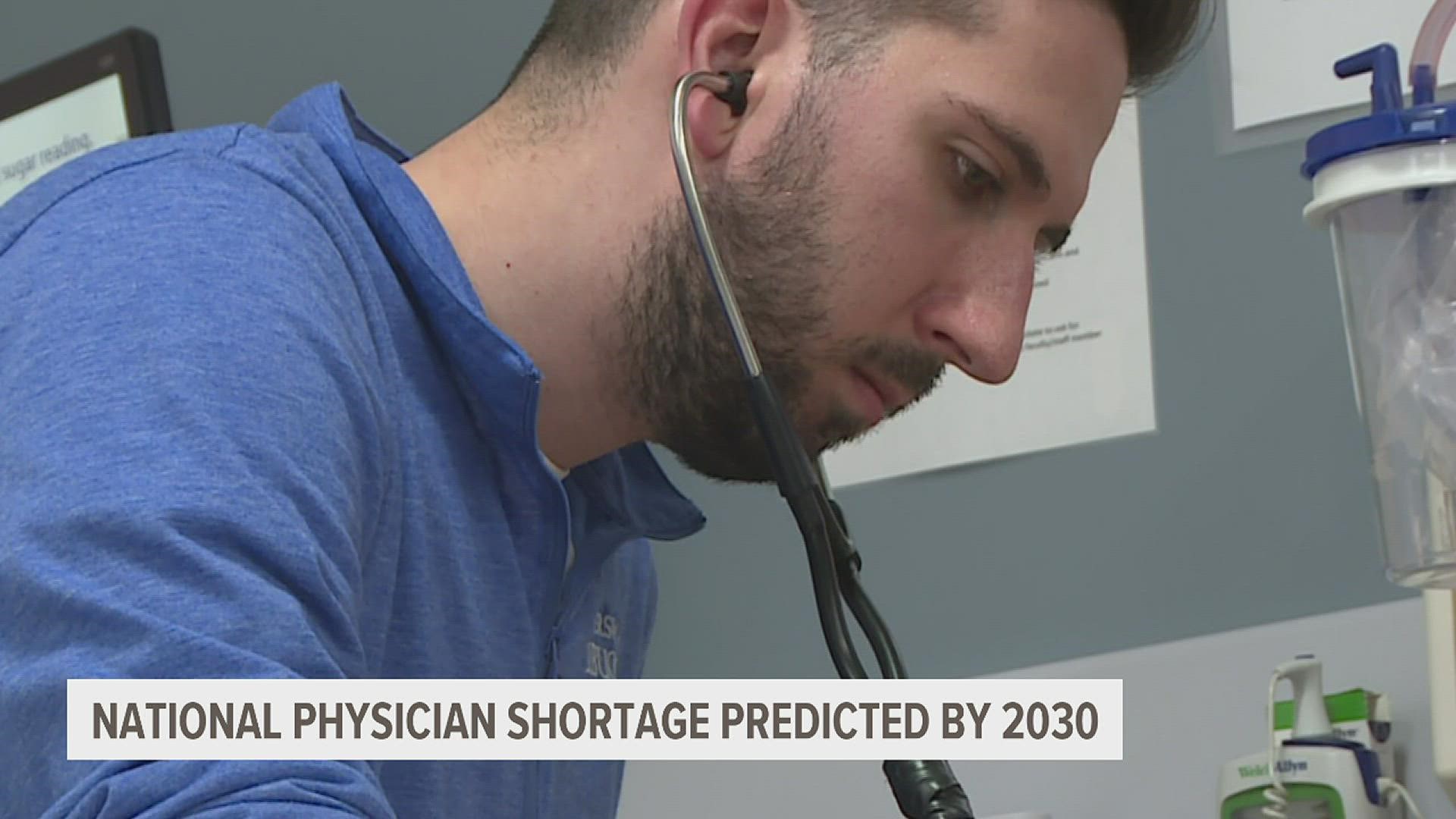DUBUQUE, Iowa — When going to school to be a physician assistant, it's pretty common to roleplay as a sick patient.
PA-C and Assistant Professor Cortney Kueter does it to make sure her students at the University of Dubuque know how to take a patient's medical history and care for them properly.
"Our philosophy in PA school, we really believe in the in-person, the hands-on, the seeing what this is really going to be like," Kueter told News 8's Collin Riviello.
However, not everyone wants to find out.
A study conducted in 2019 and published in 2020 predicted almost 140,000 physician jobs will be unfilled by 2030. It's predicted that the Midwest alone will lose more than 16,000 by that time.
"I see that in my current clinic," Kueter said, "we have a lot of amazing older physicians and we don't expect them to practice until their last time here."
There is hope for that problem — the PA students that Kueter teaches. The U.S. Bureau of Labor Statistics predicts strong job growth in the PA field by nearly 30%.
But why?
"With physician assistants, school is shorter, it's less expensive than med school because it is shorter," said Marissa Meyer, a PA student in her final year of the Master of Science in Physician Assistant Studies program. "It's a quicker turnaround, so programs are between two and three years so they're able to produce more PAs in the same amount of time it takes to train a few physicians."
The average specialized medical student graduates with around $200,000 in debt, according to a 2020 report from the Association of American Medical Colleges. PA students pay just about half of that, according to a 2018 report from the National Commission on Certification of Physician Assistants.
The University of Dubuque's MSPAS has an attrition rate of less than 0.25%, meaning less than 0.25% of students are leaving the program.
Second-year PA student Emily Onken knows she'll experience some hardships during her studies.
"I think regardless of where you are in the health care field, there will be burnout," Onken said. "Nurses, PAs, NPs, physicians — all experience burnout."
But she and her classmates still forge ahead.
"I think it just increased my motivation to do well in school and to be someone who could mark like embark change in the future with our patients," Onken said.
And PAs will continue to fill the gaps as needed to make sure their patients are cared for.
"It has been recognized now that we're definitely capable of helping take care of patients' needs and we work so closely with physicians that we really can help continue the great care that the physicians have already started," said Kueter.
In winter 2021, Dubuque's program had 25 graduates. All of them passed the PA certification exam on the first try; 18 students hope to do the same this winter.
Watch more news, weather and sports on News 8's YouTube channel

